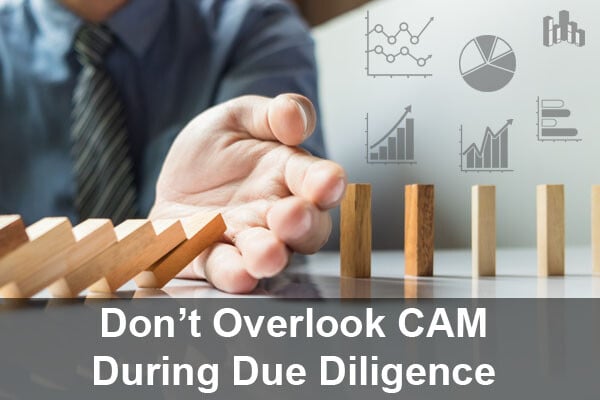Real estate ownership can be a whirlwind. You manage accounts and finances, interface with the public and your tenants, organize documents and applications, and much more. With all these tasks, it’s like you need a personal assistant by your side, scribbling down everything that happens in a day.
Luckily, there are many technological solutions to this problem. A tech stack optimized for real estate owners can consolidate your tasks and ease communication on all ends.
What Is a Tech Stack?
Though the name may be unfamiliar, you probably recognize the concept of a tech stack. A tech stack tracks, manages, and stores data through a set of software technology applications.
By cultivating and consolidating these resources, you can have more time to complete deep work or more advanced projects. Essentially, your tech stack automates as much of your day as possible so you can do more.
Choosing to cultivate a tech stack for your commercial real estate business means cutting down on costs and maintenance. Many tech stacks use serverless computing, so there are no physical servers to house in your facility. Faster and more economical, tech stack applications are the way to go.
How Do I Begin Creating My Tech Stack?
Start with the most essential factors of your business or areas where you need the most assistance. For real estate businesses, consider starting with financial applications.
Do you need more help budgeting payments and managing your investments?
Software that houses important documents and information can be helpful, especially for property owners with a large number of employees or commercial properties. A central hub to share and easily update information also ensures you don’t lose any documents.
Consider your unique business and how a tech stack may be best utilized to aid you and your commercial real estate properties.
How Do I Stay Safe With Tech Stacks?
Like any technology in our modern age, we must implement proper safety measures to protect our data or sensitive information. Many businesses opt for serverless computing in their tech stacks due to its accessibility and affordability; however, this third-party software must be properly secured.
If you are not careful, an attacker could gain access to your clients’ and employees’ personal and sensitive data. Ensure your software is configured to allow only authorized access through an API key, and verify that logging is set up correctly so that any potential breaches can be identified and patched promptly by IT security.
Keeping your information safe and secure is vital to any virtual endeavor, so apply the same amount of thought and care to your tech stack.
Choosing Software for Your Commercial Real Estate Business
Whether your properties are retailers, offices, or medical facilities, you need proper software to keep information consolidated and communication frictionless. See the varieties of property management software below and begin your seamless transition to an efficient work life.
1. Budgeting and Accounting
Putting in place business software can be very helpful. You can better understand where your money is going and whether there are better ways to handle it if you keep track of your monthly budgets, payments, investments, and deposits.
2. Leasing and Asset Management
This software consolidates your building information and ongoing projects or deals. Some commercial spaces can house a variety of different tenants, from retailers to medical facilities, so it’s important to keep all their information organized.
Manage contracts, leases, and tenant data all in one place with leasing and asset software in your tech stack. Might we suggest STRATAFOLIO?
3. Communication
A real estate business needs to communicate clearly and often in order to run smoothly. For easy, quick contact within your company, think about using software that works like a messaging app. This will give workers more time to do deep work instead of writing emails.
For contact between tenants and owners, select software that makes it easy to inform tenants about changes to the properties or facilitates communications in times of emergencies.
4. Design and Advertising
Being in the commercial real estate landscape means relying on advertising and design. Use software in your tech stack that eases your advertising needs by automating the process. Some software or web apps have a variety of templates, stickers, and colorful typefaces to make stunning posters or flyers.
Whether posted around town or sent virtually, the aesthetic look of your materials is essential.
5. Document Storing and Signing
Compiling your documents into easy-to-find folders can make your daily life go a lot smoother. According to a study by Enlyft, 31,255 businesses use Google Drive in their company document-sharing workflows. Drive allows users to share and edit offline and across platforms, and you can easily update information and avoid losing critical notes or data.
Document signing platforms ensure lightning-fast turnaround times for deals and tenant applications. Even if you are not in the same room, your contact can verify documentation, and the process can begin.
6. Data Tracking
With all your projects and building responsibilities comes an abundance of data sets to track. Are your advertising and design elements bringing in traffic? Is the tenant communication software reaching people in a timely manner? With a data tracking app, you can clearly outline how you are performing in one place.
Even better, business intelligence software can advise you on how to improve. By tracking your data and performance, this software offers insights into your successes and future actions.
7. Tenant and Building Management
You can also implement software to encourage a better rapport between you and your tenants. For office buildings, you could install a booking platform for conference rooms and special spaces in your building. Retail tenants may want specialized security through a key fob or alarm system to keep their assets safe.
Property management software that can let your tenants know about emergencies immediately, or about updates on service and maintenance requests, is also helpful in maintaining this relationship.
Your Journey With Tech Stacks
Tech stacks can significantly reduce the workload for commercial real estate and property owners. Experiment with and research different software technology options to make sure they will work well together in your tech stack. Grow your business to new heights by creating a seamless software experience with your tech stack today!








